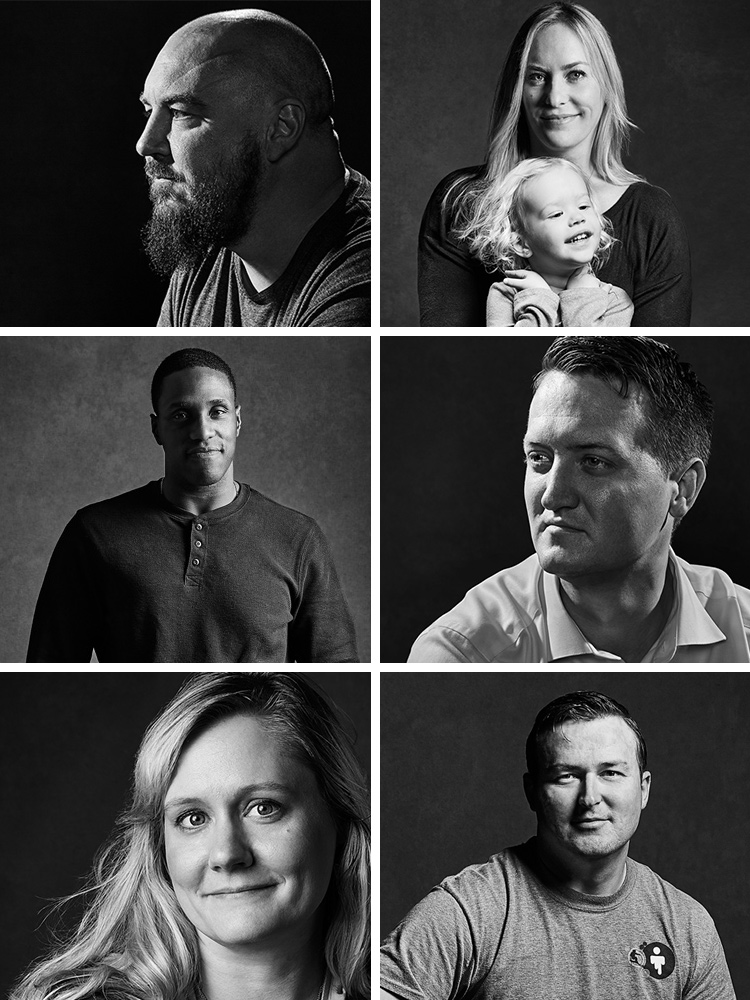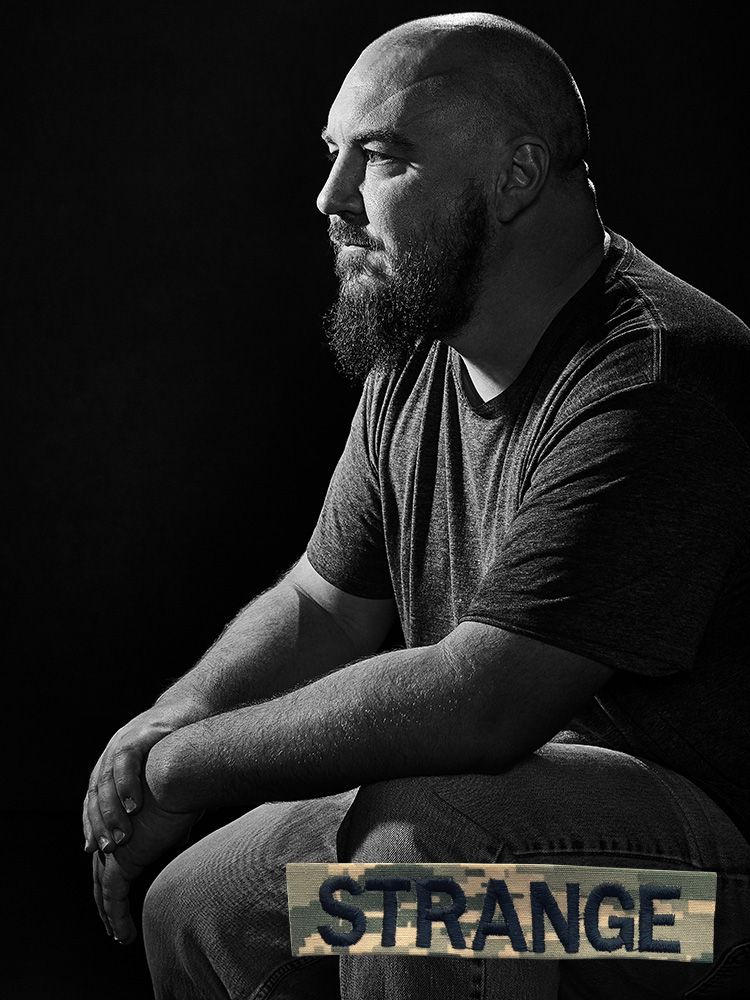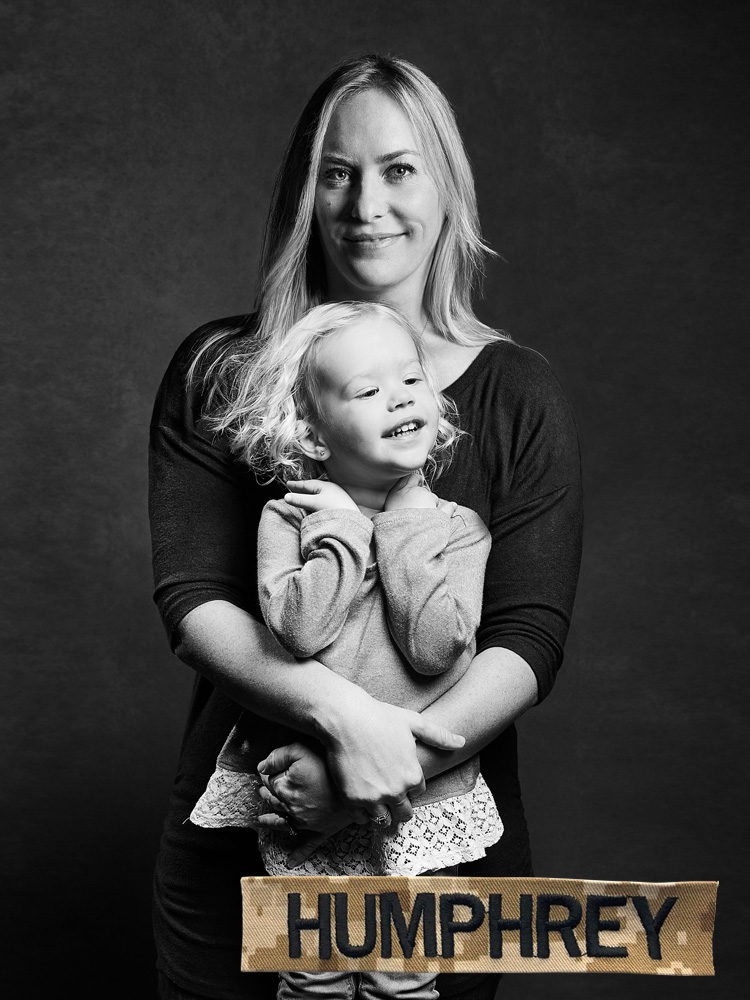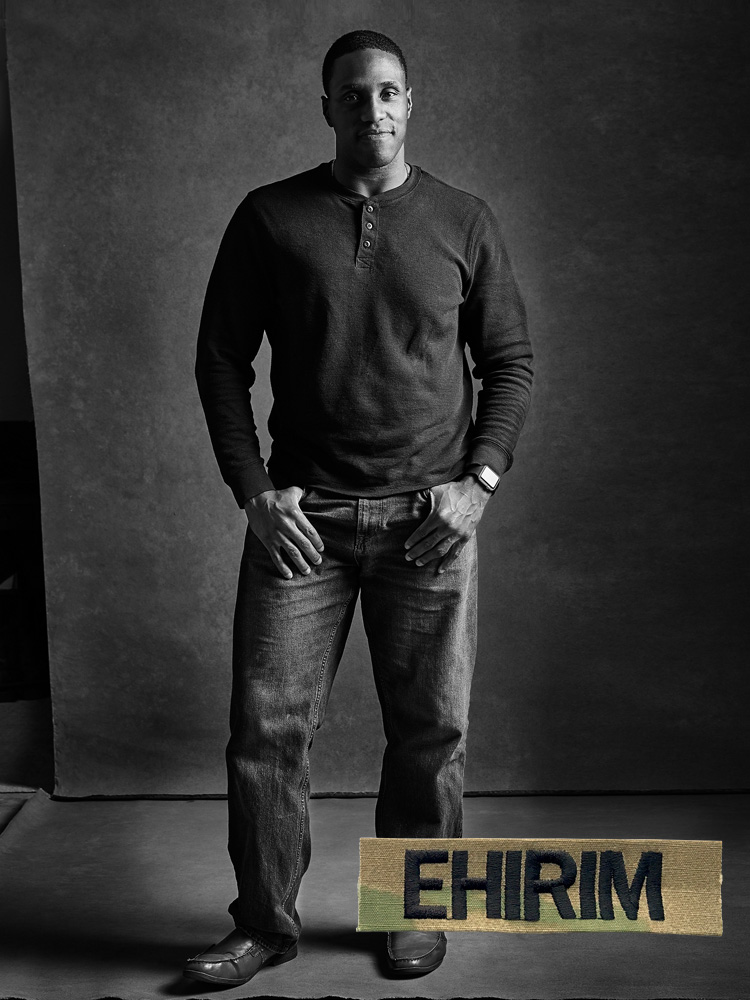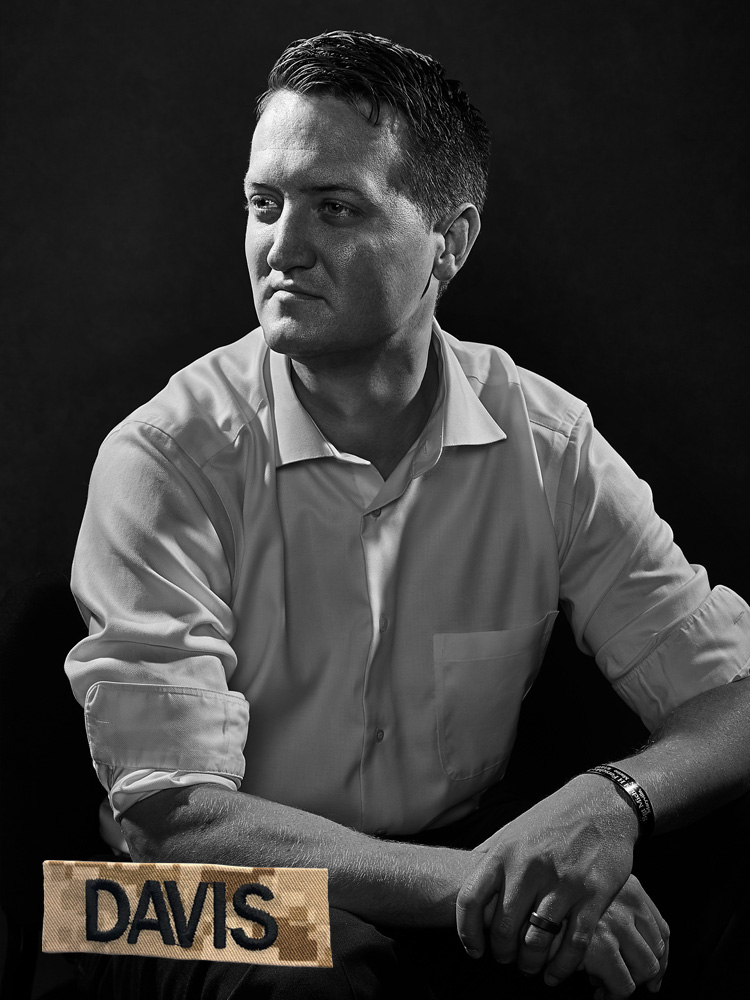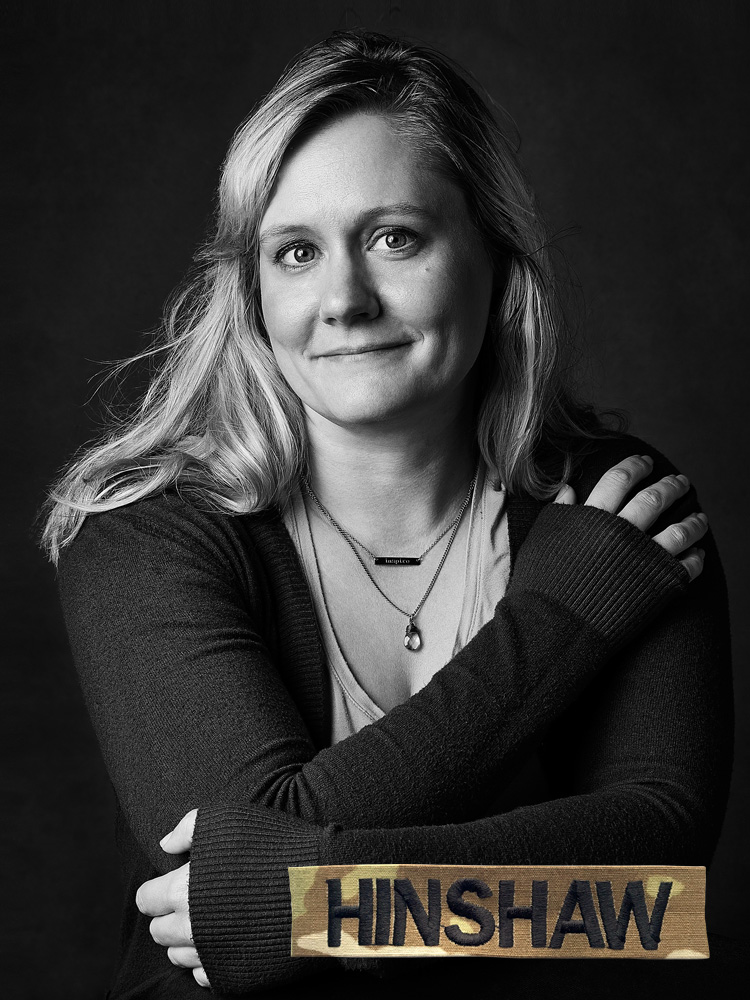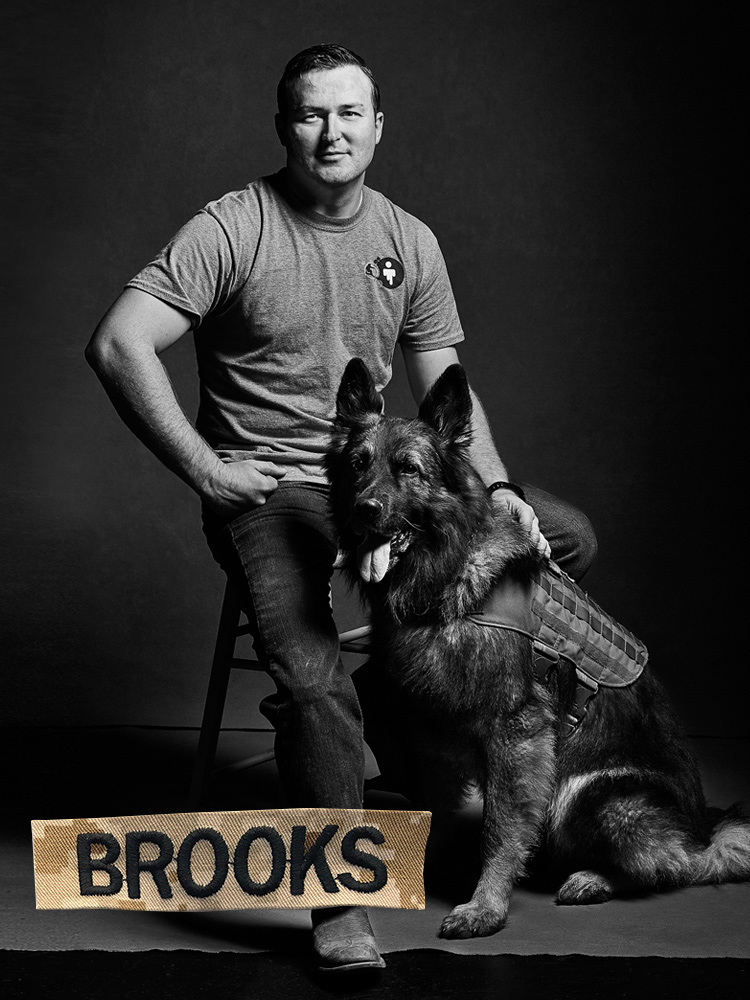Success After Service
Student veterans find encouragement, guidance and community through Baylor's VETS program.
They are America’s front line, men and women called to serve the nation for the greater good through our military. Whether at home or abroad, they serve with dignity, honor and pride. Their tasks all look different, but at the heart of each person’s mission is the protection of freedom.
When America’s military personnel leave the service, they often find personal freedom to be quite daunting. Nowhere is this truer than for those who begin or return to college.
Baylor is one of the universities across the country where faculty and staff seek to aid in that process for the nearly 100 undergraduate and 40 graduate student veterans at the University.
Mandy Hinshaw, a Baylor senior education major and Army veteran, experienced the trials of transition to college life.
“You go from this culture where someone tells you what to wear, how to fix your hair, where to be, how long to be there, when you’re allowed to go home,” Hinshaw says. “Every part of my life was planned for me.”
Hinshaw, who joined the Army out of high school in 2004, began college at North Carolina’s Grace College of Divinity before spending a year at Campbell University in Blues Creek, North Carolina.
In summer 2015, Hinshaw was jogging on Baylor’s campus while visiting her sister, who lived in Waco. Despite having no previous connection to Baylor nor living in Waco, Hinshaw said it felt like home and she decided to apply.
“I didn’t know that I was Baylor material,” Hinshaw says. “I decided that if I was accepted it would be because God wanted me here.”
But transition to college life was not easy for Hinshaw, who grew up in Arizona and whose older brother also served in the military.
“I remember crying every other week my first year out of the Army,” Hinshaw told the School of Education’s Impact last spring. “I probably felt lost like most freshmen, asking questions like: What am I doing with my life? Do I go to class or sleep in? Will I make friends? But I was a full-fledged adult. Having this identity crisis in your early 30s is not what you expect.”
“Baylor is like family to me now.”Mandy Hinshaw
At Baylor, Hinshaw found a welcoming community of fellow veterans with whom she could commiserate about the trials of new responsibilities and newfound freedoms.
Founded by Dr. Janet Bagby, senior lecturer in educational psychology, Baylor VETS (Veteran Educational and Transition Service) promotes the academic success of veterans at Baylor University. All Baylor students who are military veterans are eligible for the free benefits offered through the VETS program.
“Baylor is like family to me now, and I think a large part of that is because of the VETS program,” Hinshaw says. “I would like to think I would’ve made it, but it would’ve taken a lot more out of me, and I don’t think I would love and appreciate Baylor the way I do without the VETS program.”
A Military Community
Since its founding in 2012, the VETS program provides resources that recognize and meet the unique needs student veterans share. Christopher Strange, a Baylor junior political science major who served 20 years in the Air Force, praises Bagby’s work in getting the program started.
“She did so much with so little,” Strange says. “She did a fantastic job. The program wouldn’t be here without her.”
Bagby was coordinating the VETS program on a part-time basis, managing it when possible alongside her full-time faculty duties. Soon, the need for a full-time coordinator was apparent.
In 2016, Kevin Davis, BA ’12, was hired as VETS program manager within Academic Affairs. He offices in the Paul L. Foster Success Center near a VETS-specific lounge that provides Baylor student veterans a space to convene and build community.
“You feel like you’re on an island as a post-traditional student,” says Davis, who served in the Marines and whose wife Lizzy Davis is assistant director for Student Life’s Academy for Leader Development. “I see the VETS program as building bridges to faculty and staff, to other veterans for peer support, and also to traditional students.”
Baylor was named a 2017 Military Friendly School by MilitaryFriendly.com, and the services provided by the VETS program were the driving force behind the honor. VETS resources include a Veterans Transition Class, a Salute to Sic’ems mentoring program that connects students with Baylor faculty and staff members who also served, academic support, a Veterans of Baylor student organization and more.
The VETS lounge, which opened in fall 2017, has become a favorite venue for Baylor student veterans. Located in the Foster Success Center, the lounge provides student veterans an environment more like the military life they left behind than other places on campus.
“I see the VETS program as building bridges to faculty and staff, to other veterans for peer support, and also to traditional students.”Kevin Davis
“We call it our safe space,” says Katy Humphrey, a Baylor senior health science studies and exercise physiology major. “It’s a military community. We’re very blunt with each other. The VETS lounge is my place where I can be myself.”
Humphrey, who says that camaraderie between student veterans is highly important to their ability to succeed at an academic institution, was vice president of the Vets of Baylor student organization during the 2015-16 academic year when Strange was the organization’s president.
“Everybody I meet in the VETS program blows me away because there are so many challenges veterans face that normal students don’t face,” Strange says. “You can see Katy’s drive and determination. She’s going to do everything she can to get her education here at Baylor. Everybody in the VETS program seems so driven and determined to make themselves better here.”
A Need to Serve
Strange grew up in Garland, Texas, and enlisted in the Air Force straight out of high school in 1993. He served two decades as an aircraft armament systems technician and was stationed in Alaska, South Korea, New Mexico and the United Kingdom. Strange was a part of Operation Enduring Freedom and Operation Iraqi Freedom, and his final deployment was to Afghanistan with a rescue squadron.
“My grandfather served in the military, but I didn’t really have any kind of direction in life,” Strange says. “I knew the Air Force would give me direction, and it surely did.”
Strange loved his Air Force job but knew he couldn’t do it forever. With very little need for his skill set outside the military, Strange prepared for the next chapter of his life as he neared retirement from the Air Force. He knew his first step would be to obtain a degree.
The son of a single mother, Strange is a first-generation college student. His only exposure to anyone with a college degree as a child was an uncle who attended the University of North Texas and Southern Methodist University. Baylor appealed to him because of the University’s academic reputation.
“When I retired from the military, my ultimate goal was to find a town that needed a mayor, thinking maybe I could help some more people that way,” Strange says. “Being a 20-year military veteran, having a political science degree would open doors for me.”
Strange wants to be involved in the political world, but he’s not entirely certain how. While at Baylor, he found a passion for photo journalism, which is his minor.
“Going and finding people’s stories and seeing them is really interesting to me,” he says. “I still feel that need to help people sometimes.”
Because the need to serve never leaves a veteran, Davis says Baylor’s mission of service resonates with veterans.
“Finding people who can relate to you and help you out with some of the difficulties you face becomes very important.”Christopher Strange
“This being a university whose ultimate mission is transitioning them to another area of service really gives them that continued identity and purpose,” Davis says. “That’s what makes Baylor special.”
Strange says the VETS program is another aspect that makes Baylor special. While he faced the challenge of beginning college in his late 30s, he recognizes that even veterans who embark on their college journey four or five years removed from high school may struggle to find their way in a college environment.
“There is a huge gap between college students and veteran transfers that come in,” Strange says. “Bridging that gap and finding people who can relate to you and help you out with some of the difficulties you face becomes very important.”
Strange says much of military life is about being self-dependent and self-organized. “You take care of problems yourself,” he says. But at Baylor, he found an environment rich with avenues for assistance, especially in terms of academic support.
“That’s one of the really good things the VETS program does is that it helps you coordinate where you need to be,” he says.
The Air Force was largely a scripted lifestyle for Strange. But college life requires more self-discipline, and being able to ask for assistance was key in making the transition.
“Here in college, a professor might say, ‘This assignment is due in a month; tackle it at your convenience,’” Strange says. “That can be a shocker for veterans, who are moving from that regimented society into a free-flowing society. It has its challenges. The VETS group really does help with that.”
A Common Struggle
Nelson Ehirim’s journey to Baylor took many unexpected turns, including the surprise that his path led to Baylor.
After sustaining an injury during his senior year at Manor [Texas] High School, Ehirim’s dreams of playing Division I football seemed dashed. He instead played three seasons at Midwestern State University in Wichita Falls, Texas, before graduating and enlisting in the U.S. Army.
Ehirim quickly climbed the ranks and was an officer by age 22. He managed personnel, led his unit and worked with soldiers through their personal ups and downs. Ehirim felt the call to better support his wife Ashley and their two children; so, he decided to return to college and pursue a master’s degree. When Ehirim’s fellow officers learned of his decision, they challenged him to pursue more than the degree.
“They dared me to find out if I had any eligibility left,” Ehirim says. “The NCAA told me I had two years remaining. Then it became a question of whether or not I really wanted to do it.”
In the end, Ehirim decided to attend graduate school at Baylor. He was a member of the Bears’ 2014 Big 12 Conference championship squad, and he earned a master’s degree in sports pedagogy.
Ehirim found college life after serving in the military to be quite different than his undergraduate experience, and he credits Baylor’s VETS program with making the transition possible.
“I don’t think I could have made it without the VETS program,” Ehirim says. “You develop an anxiety because you’re so used to an attention to detail and a specific schedule. You go back to college, and you’ll go crazy if you have that same meticulous approach to life because no one else is operating like that. If you’re always high strung and everyone else is at a different operational tempo, you’ll bring on this added stress. That’s where I was.”
“You realize that everybody struggles with the transition.”Nelson Ehirim
Ehirim says getting to know other veterans—and reconnecting with fellow students with whom he had served—was vital. The ability to communicate with other student veterans about common experiences in college life made Ehirim realize he was not alone.
“You realize that everybody struggles with the transition,” Ehririm says. “While you’re in the military, you don’t realize that you’re becoming entrenched in that culture and that system. You speak the language; you use the acronyms. Then you go to the gym at college, and you think, ‘Why do I have my shirt tucked in?’ It’s little things like that—things you don’t realize, but the people around you do.”
While adjusting to college life is difficult for many student veterans, there also is the challenge of the life left behind. Ehirim, who now teaches and coaches at Waco’s University High School, received sage words of advice from a commander upon leaving the military.
“He said, ‘The Army was around before you, and it’s going to be fine after you leave,’” Ehirim says.
A Childhood Dream
Dolly Anna Ruth Elliott Hames Hubbard dreamt of attending Baylor as a little girl after seeing a Sailor Bear sticker at the Houston Livestock Show and Rodeo. But it took several decades for that dream to become reality.
Hubbard was born in Martinez, California, and moved to Splendora, Texas, when she was 5. She briefly attended Texas A&M University before marrying and moving to Oklahoma. Her husband joined the U.S. Air Force, and she served as an officer’s wife for nine years.
“That took us everywhere, and we became citizens of the world,” Hubbard says. “It was in the military that I learned about diversity and universal acceptance.”
Eventually, Hubbard joined the U.S. Army and served 11 years as an air traffic controller before injuries and illness led to her military discharge in 2004. When her son, who served two tours of duty in Iraq, suggested that she use the G.I. Bill to return to college, Hubbard remembered her childhood dream of attending Baylor.
“If God is going to let me go anywhere, let me go to Baylor now because I’ve gone everywhere else in the world,” Hubbard told her son.
Much to her surprise, Hubbard was accepted at Baylor in 2010. However, her matriculation was slowed due to various unfortunate events, including an automobile accident in 2012, the loss of her father in 2013, and the loss of her husband in 2014.
In 2015, she returned to Baylor with her service dog Butter Bean. Hubbard views it all as God’s work.
“I never saw anything work so much in God’s will than getting me to Baylor,” she says. “I asked, and it happened. It wasn’t like Baylor really needed me, so I knew it was God. All along, I figured it was God that made sure I got that little Sailor Bear sticker.”
In August 2017, Hubbard earned a Bachelor of Science in education and integrated environmental sciences. She overcame many hardships and trials to complete the degree, not the least of which was commuting from East Texas.
“God takes steps at a pace that is not for us to determine,” Hubbard says. “His stride is not for us to keep up with. I honestly believe he’d pick us up and drag us along if he has to. I’m thankful that he thought I was worth troubling with.”
“A lot of times, I’m a bridge between the students and the professor.”Katy Humphrey
Hubbard has attended several schools in Texas and throughout the world. However, she highly recommends Baylor to veterans.
“Considering Baylor as your university is almost like considering the military as your vocation. It’s the right choice; it’s the right thing to do,” Hubbard says.
Hubbard found Baylor to be a continuation of the call to service, community and duty that she experienced in the military.
“My faith lives, breathes, works and was educated at Baylor,” Hubbard says. “There’s no finer place to be called to service again than through Baylor.”
A Good Foundation
Hinshaw says many people have contributed to VETS program’s success, including Associate Vice Provost for Academic Enrollment Management Sinda Vanderpool, Veterans Affairs Coordinator Jessica Alford, and Bagby. She says service from people like those three and Kevin Davis make Baylor a perfect fit for veterans.
“You have a bunch of people that did things for others who were selfless leaders and had that foundation when they came to Baylor,” Hinshaw says. “Everybody on campus that knows the vets are here really makes them feel welcomed. I’ve not seen anything that would be contradictory to that.”
Davis hopes to continue enhancing the VETS program. He hopes to find ways to support children and spouses of veterans who have in some ways served as significantly as the veterans.
“We have a good foundation,” Davis says, “But we have a lot of room to grow.”
